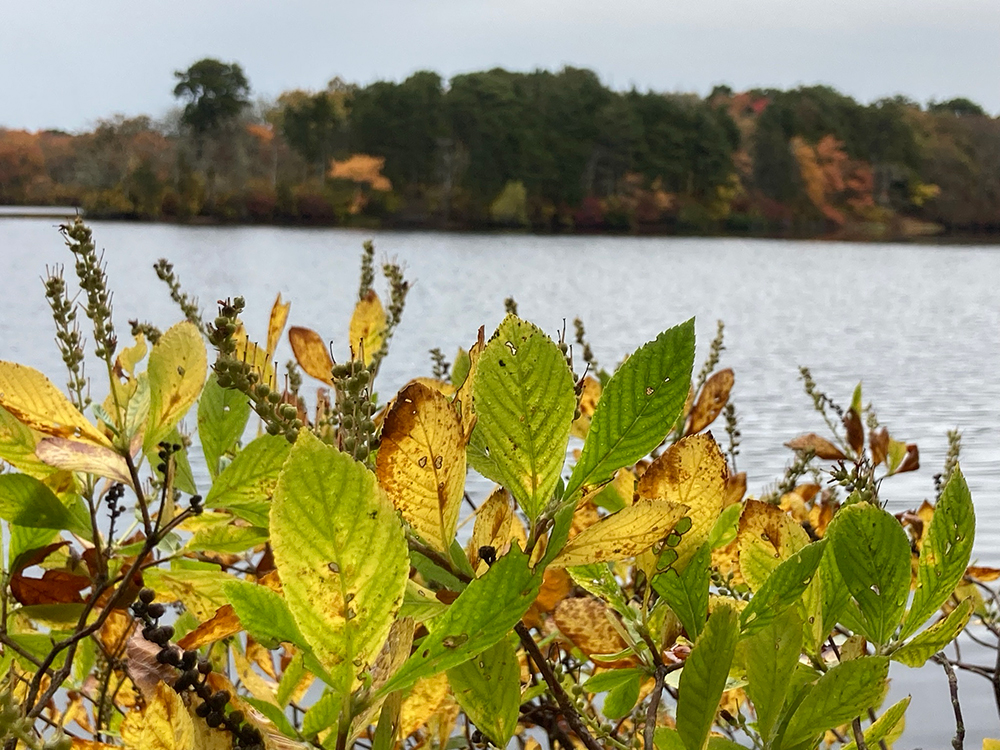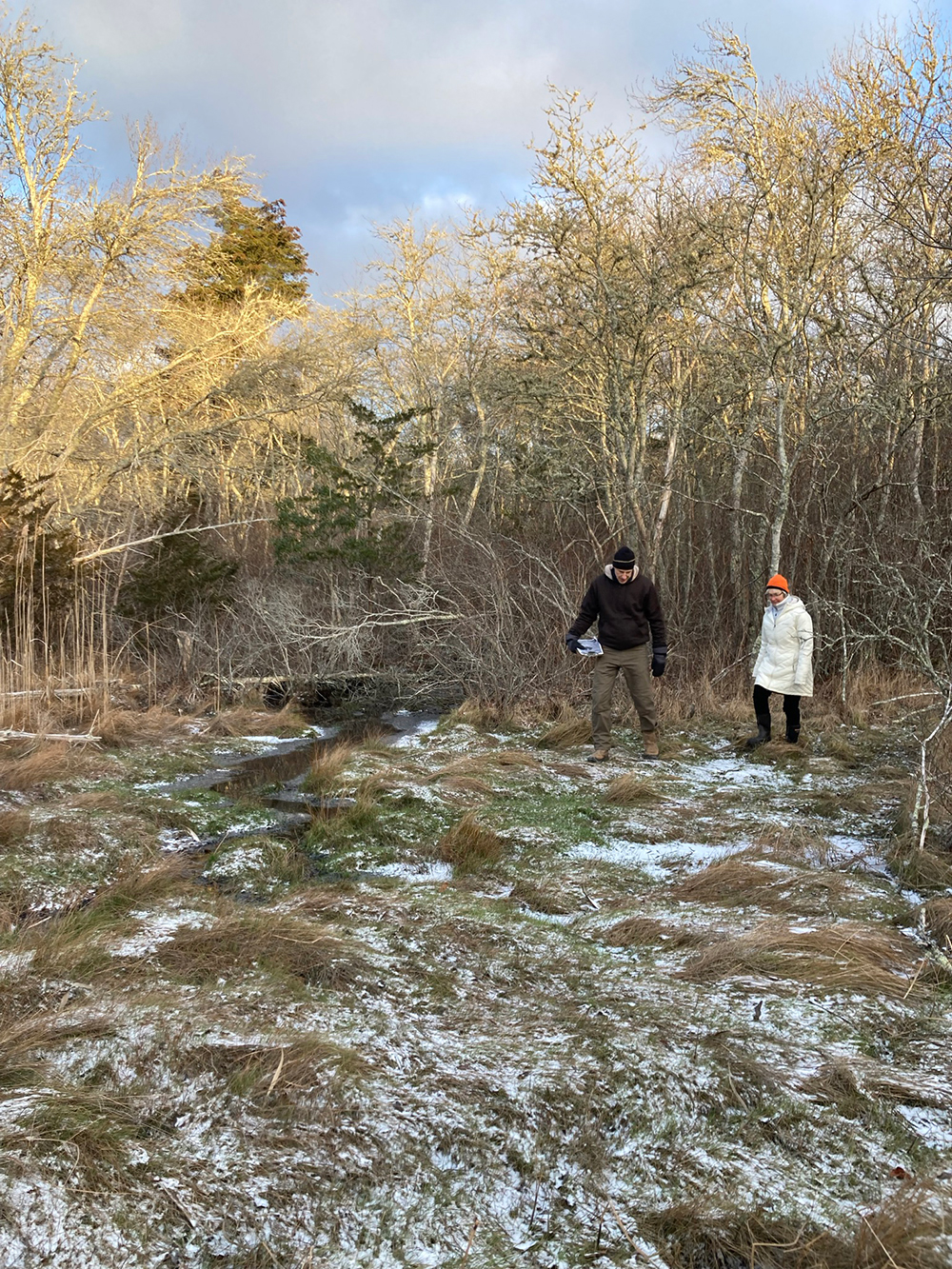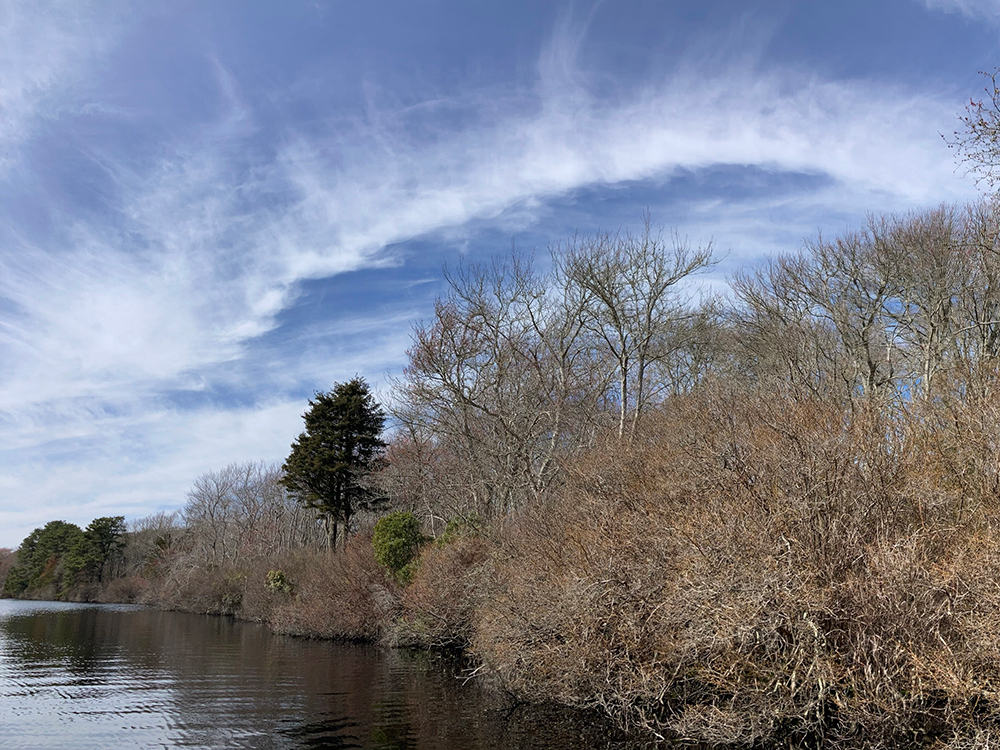Fresh Pond
South Dennis
Fresh Pond is a 30-acre Great Pond located between Main Street and Route 134 in South Dennis. It is among the best protected ponds in Town, with much of the surrounding land conserved by the DCLT, the Town, and Mass Audubon. Water in Fresh Pond is stained a natural brown color, the result of extensive swampland around its shoreline. The Pond has an outlet stream to the south that discharges west into the Bass River.
Recreation
Fresh Pond offers both land- and water-based recreational opportunities. The Town’s Fresh Pond Conservation Area currently offers a dog park, hiking trails, a canoe/kayak launch, and parking. The DCLT conserves two properties, one to the north and one to the south. The south property offers walking trails and is accessible from the South Dennis Congregational Church Cemetery. The north property is largely inaccessible, but views of its cedar swamp can be had from an overlook off Duck Pond Road.
Status
Fresh Pond is a large, shallow, acidic pond with a maximum depth of just 9’. It is the second largest freshwater pond in Town. Fresh Pond’s acidic, brown waters result from high levels of dissolved organic carbon deriving from humic substances found in the extensive swamp and peatland to its north.
Despite extensive protections around its pondshore, Fresh Pond scores poorly on most standard indicators of health. The pond has low dissolved oxygen, high acidity, low water clarity, and high nutrient concentrations. The pond’s water quality may be negatively impacted by road runoff and nutrient pollution from septic systems and fertilizers, though the density of surrounding development is relatively low.
The seemingly impaired status of this well-protected pond may largely reflect its natural state. Shorebirds and waterfowl frequent the area in large numbers and may contribute significant nutrient inputs. The pond’s natural brown color is typical of “dystrophic” ponds, reducing water clarity and the ability of aquatic plants to grow and sequester nutrients from the water.
History
As early as 1866, Fresh Pond was described as “one of the loveliest lakes on the Cape.”
Throughout the 1800s and into the 1900s, the pond was primarily used for fishing, skating, and iceboating. A private landowner bordering the pond stocked it with black bass in 1875. In the late 1800s, it was the site of an ice-house until it burned down on Christmas Eve in 1910.
A 1911 survey of Fresh Pond reported that the area surrounding the pond had whitecedars that were larger than any seen on the Cape below South Dennis. At that time, the pond had bass, eels, red perch (yellow perch), pickerel, and hornpout (brown bullhead) and had been stocked with white perch in 1910 and catfish in 1916. Chain pickerel were noted in a 1952 survey but as early as 1966, a report noted the lack of pickerel, most likely due to the low Ph level.
In 1912, about 40 acres of swamp surrounding the pond were purchased to be utilized as a cranberry bog.
In 1966, the town purchased the pond with 83 acres of surrounding land, described as being one third upland and two thirds cedar swamp, for $59,000. It was the first major land acquisition by the Dennis Conservation Commission which had been established a few years earlier.
At the time of the purchase, it was reported that the pond had perch and pickerel and that there were a total of 146 bird species utilizing the area.
In the early 1970s, the Conservation Commission requested assistance from the MA Department of Fisheries and Game to develop Fresh Pond for the establishment of a recreational fishery. The plan was to eliminate the existing fish population and introduce pickerel and yellow perch. The town applied lime to neutralize the acid conditions but there is no evidence that any further action was taken to establish the recreational fishery.
The Dennis Conservation Commission held an event in 1974 to celebrate the completion of its efforts to assemble a total of 82 separate tracts, on both sides on Route 134, which now makes up the Fresh Pond Conservation Area.






